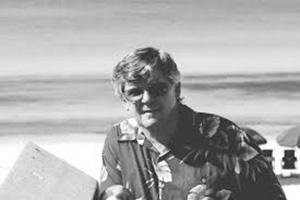By Hardy Jackson
Yep, I missed it.
I let it slip up on me and before I knew it, it was gone.
And what did I miss?
Why, National Poetry Day.
I just flat missed it.
Which is a shame because I like poetry.
As a sensitive and romantically inclined young man, I even tried my hand at it. The verses I penned were consistently wretched. One, however, was less wretched than the rest. It was chosen to fill a blank space in the college literary magazine, and thus became my first publication. The magazine went belly-up the next year. I took it as an omen.
I got my love of poetry from my father, who got it from his grandfather, who was fond of quoting verses like:
When Pa was just a boy like me, he used to go in swimming
Away down by the old creek bank, where there was no fear of women.
One day somebody came along and took all Pa’s apparel.
He stayed in the creek the whole day long, and that night came home in a barrel.
As far as Daddy was concerned, it wasn’t poetry if it didn’t rhyme. Which is why he was such a fan of Robert W. Service. The “Bard of the Yukon,” the “Poet of the Klondike Gold Rush,” was a rhyming machine.
One of Daddy’s favorites was “The Cremation of Sam McGee,” a harrowing tale of a Tennessean who hated the frozen North, but could not leave — “He was always cold, but the land of gold, seemed to hold him like a spell.” On his death bed (actually his death sled) McGee made his partner promise that he’d cremate the corpse so he would be warm once again.
Daddy read it to me with all the dramatic emphasis he could muster. I read it to my eldest daughter with the same articulations. She was in elementary school. When “show-and-tell day” came around, she took the poem and gave her class a theatrical reading that likely scarred some of the little dears for life.
Poetry can be dangerous.
Poetry can also be fun.
Daddy loved poems with a twist – especially if they made you think inappropriate thoughts. One of his favorites was:
Of all the fish in the ocean,
The funniest is the bass.
It climbs to the top of seaweed trees,
And slides down on its (dramatic pause) hands and knees.
Now you gotta admit, that is funny.
Once poetry almost got someone in serious trouble.
Our high school principal was G. C. Nichols. I was told that G. C. stood for Grover Cleveland. Behind his back we called him “General Charlie.”
He had a temper.
One sunny spring morning he arrived at the school to find students milling around in the halls. He thought they should be outside enjoying the warm weather. The more he thought, the madder he got, until finally he bounded from his office and at the top of his lungs roared “Get out.”
Terrified, we did.
The next day a poem appeared on the main bulletin board. Typed and unsigned.
Titled, “When the General Cleared the Hall.”
Shamelessly stealing from Robert Burns, the poet began “ ‘Ye Banks and Braes’ and bricks around the school O’ Mr. Nichols. Fair are ye maids and strong ye lads, ye teachers sour as pickles.”
From that opening the bard-in-training went on to make sport of the General for driving winter-pale children out into the schoolyard and the sun.
Before the poem was taken down, it was read by enough students that soon the gist of it was known abroad, though the author remained a secret. Some knew who it was, but no one told.
Blocked by this conspiracy of silence, the investigation of the incident ground to a halt and soon the matter was forgotten.
Years passed, 40 of them, until it was 2001.
My class, the class of 1961, was holding its reunion.
My father, who had been one of our teachers long ago, was asked to say something appropriate.
When it came his time to speak, he rose, took out a copy of “When the General Cleared the Hall,” read it to the class, and outed his son as the author.
He told me later that he always wanted a poet in the family.
Harvey H. (“Hardy”) Jackson is Professor Emeritus of History at Jacksonville State University. He can be reached at hhjackson43@gmail.com.

